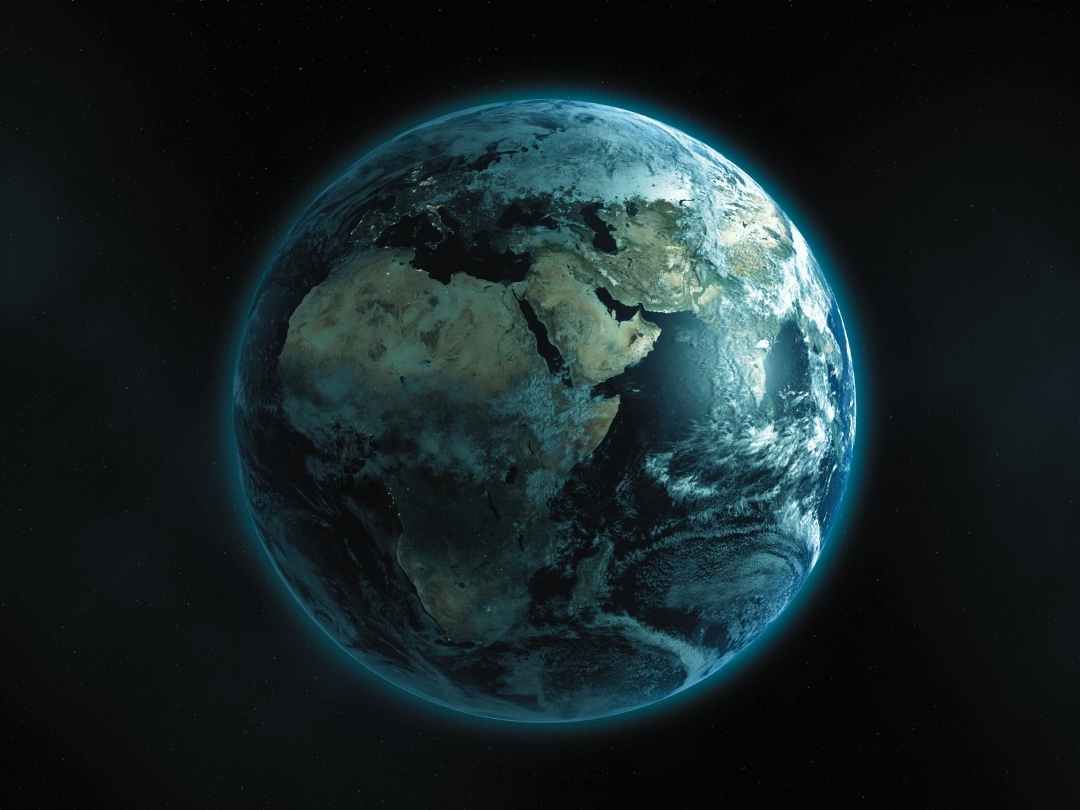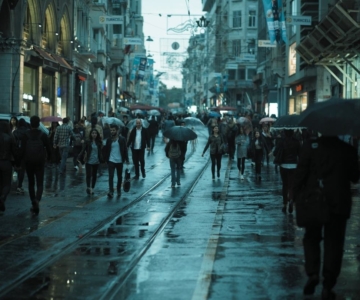>oiktozian: Oğuz Tutal
Title of The Work: The World’s Race Against Time
Original Title: Dünya’nın Zamanla Yarışı
Earth! The pale blue dot. The only known place in the universe where we can live. That’s how Carl Sagan described the Earth in 1980. From a distance it doesn’t look like a very interesting place, but it is the little dot that is our home. Every day it spins and spins at a tremendous speed, and as it spins, it has changed and continues to change itself and its inhabitants. Better and faster. For some it is “citius, fortius, altius”.
The big clock was ticking like clockwork, but one day the order changed. The world continued to spin, and its speed remained the same. But its inhabitants took a decision and started spinning faster and faster. That’s how the scissors started to open. As they spun, they changed. First plants, then animals, then humans began to change. Ecosystems developed, all plants and animals competed or cooperated to survive and thrive. In doing so, they changed the environment. But one of them betrayed the others and managed to break away: Man! Two characteristics of man set him apart from all other living things. Man could destroy and dominate. In the last two million years, except for a few thousand years, he hunted and gathered food.
At first there were Bushmen, Sians, Inuit, Gidjingalis. Then their brains grew and they developed technology and abstract thinking. They learned to move freely on two legs, they spoke and communicated. Then they started to produce, and in this way man was able to destroy and dominate. Agriculture came, bringing with it settled societies and ever-increasing populations. Then agriculture spread. Sumer rose, declined and fell. Nabuchadnezzar wrote and drew in the Hanging Gardens of Babylon. Nabuchadnezzar drove in the Matrix. Flowers once bloomed in the deserts and arid lands of Mesopotamia. Hard to believe that this ruin was the food source of the Earth. Not enough, Ethiopia, the Great Christian Kingdom of the Middle Ages, collapsed. The forests were cut down and Addis Ababa was made the capital. The capital city meant destruction, the trees around the city were wiped off the face of the earth by coal.
More than that? It was 650 BC. All those people in Greece, on the brink of great destruction, waiting for news. They were there. In Critias, Plato compared the earth to the skeleton of a sick man. The rains sent by Zeus nourished the crops and forests. But when the trees went, so did Zeus. The Mayans disappeared, the Nile Valley dried up and the Indus River continued to flow on its own. In the New Age, colonies emerged, bringing with them the antithesis of discoveries and colonies. New settlements were opened on the new continent, forests were burned, and imagine a fire that lasted for seven years without going out. In the feudal structure, land was shared, land was valuable, but it was also worthless. Man became the owner of the land, fought for it, suffered for it, rejoiced in it.
Modern times were different, but the same. The New World was a world in which man became more and more detached from nature and sought his place. Pascal was frightened by the silence and depth of this infinite space. The machines came, the machines became powerful, bringing the distant near. Man became faster, man became higher and man became stronger. But man was still slow compared to man. Man became standardized, man wanted and consumed. The more he consumed, the more he consumed and produced to consume. The postman, in his distinctive clothes, knocked on our door, telegram in hand, and delivered the envelope with the message that you have to speed up. He did this every hour of every day, the postman stopped, televisions did it, telephones did it, computers did it, you did it, he did it. Cities grew, cities became complex, cities had police, they needed parks, everything that was once spontaneous was now needed. Space and time warped, time and space were no longer the time and space we knew, because there was less and less we didn’t know. Or was it an illusion of time that the more we knew, the more we didn’t know? The cyclical, self-repeating rhythm of nature was broken, because nature was a turtle for man. The hare was running away, the hare was arrogant. For a while, reality seemed to bring unhappiness. Cubists and expressionists popped up like mushrooms. Were they poisonous? If not, nothing could stand in the way of the temptation to cook them on the stove and eat them. With the mushrooms, reality was shattered, time was recreated. This is why Guernica and Nagasaki shared a common fate. As one reached faster, stronger and higher, the other watched it on the silver screen or had to raise his head in a night’s sleep.
The world produced, the world worked, the world suffered. Oil, engine, engine, oil, engine, oil, engine! The world was the same, but people were in one sphere, in all of them. People became globalized. While all this was happening, humanity preferred economy to ecology. It prioritized itself. But mankind was in over its head. On Easter Island, the Pygmies, the Hadza, the Aleutian Islands, New Zealand, the Yellow River, the Gulf of Mexico, the Black Sea, humanity dug its own well. In each case, man won the conflicts but lost the battles, repeating each other and trying to open the speed gap with the Earth. Nature prevailed, nature was slower but stronger, faster, higher. Time was the only thing that held man and Nature together. Time knew how to subjugate.
And again, in Sagan’s words, our Earth was a lonely speck in the cosmic darkness that surrounded it. Our only shelter of life and solution in the face of our conflicts and problems. The one that repeats itself in the projection of time and that we cannot resist.




